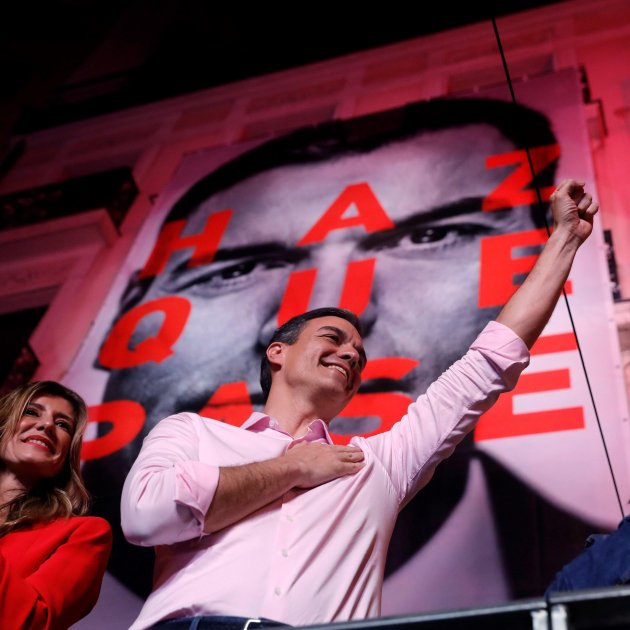The photo of the 2019 Spanish general election is one of clear winners and losers. The winner is Pedro Sánchez, whose Socialist (PSOE) party has not only obtained a more solid electoral base, but can also now choose its partners. It can either go right and link with Ciudadanos (Cs) - if that party is willing to breach its anti-PSOE cordon sanitaire - or go left and join with Unidas Podemos along with the nationalists and independence parties who supported it in the no-confidence motion last year, which first brought Sánchez to power. In contrast, the losers are the Spanish right in general, which has been left far from the 176 seats necessary to form a government because of the huge losses suffered by the Popular Party (PP) under Pablo Casado.
In the contention that precipitated Sánchez's decision to go to the polls - the choice between undertaking dialogue with Catalonia, or increasing the level of conflict - the former has emerged as a clear winner. The three right-wing parties whose rally in Madrid's Plaza de Colón helped provoke the election only obtained a combined total of 42.7% of the votes - and that, in an election where the turnout across Spain rose to 75.7%, a 9 point increase on 2016.
The Spanish prime minister has achieved a solid expansion of his parliamentary group, with a PSOE that goes from 84 to 121 seats, with 96% of votes counted. Behind them in a distant second place is the PP, which has fallen from 137 deputies to a mere 66. The third force will be Cs, who have won 26 extra representatives to reach 58. Unidas Podemos and their different regional partners fall to 35. The extreme right party Vox did not break into the Congress at quite the level expected, winning only 24 seats. Catalan parties ERC and JxCat won 15 and 7 seats respectively; then there are the Basques PNB (6) and Bildu (5), Navarra Suma with 2, the Coalició Canaria with 2, and a single seat each for Valencia's Compromís and the Cantabria Regionalist Party.
Thus, the only leader able to form a government is Pedro Sánchez. His first and most comfortable option is to reach an agreement with Ciudadanos, which would give him 180 seats. But throughout the campaign Cs leader Albert Rivera has put a red line between himself and the PSOE, while Sánchez said this week that "it did not enter into his plans" to make a pact with Rivera's party.
Looking in the other direction is the possibility of repeating the majority which won him the no-confidence motion against Mariano Rajoy - for which the Socialists would, as before, need to add some votes from the pro-independence parties. The sum with Pablo Iglesias's Podemos and its associates would be insufficient. However, adding just one more party - Catalonia's ERC - would give him a parliamentary majority, unlike in his previous, more-fragmented investiture vote.
What has been totally erased from the options is the "Andalusian route" - the PP-Cs-Vox tripartite, so the photo from the Plaza de Colón can't be repeated on the steps of the Moncloa, the prime ministerial residence. The three right-wing parties have only 148 seats in total - thirty deputies short of an absolute majority. The partner who let down the side was the PP, where Pablo Casado lost more than half his parliamentary strength.
On the third floor of the PSOE headquarters in Madrid's Calle Ferraz, where Sanchez celebrated the results with his team, their faces throughout the night reflected a contained joy. Sánchez's big political play had worked and his party has now stopped the advance of the right that the Colón rally threatened. A political approach which claims it wants dialogue has defeated one advocating open tension and territorial conflict. Sánchez has won, gaining many seats and new possible partners. At the same time, the Socialists are less dependent on the pro-independence parties.
